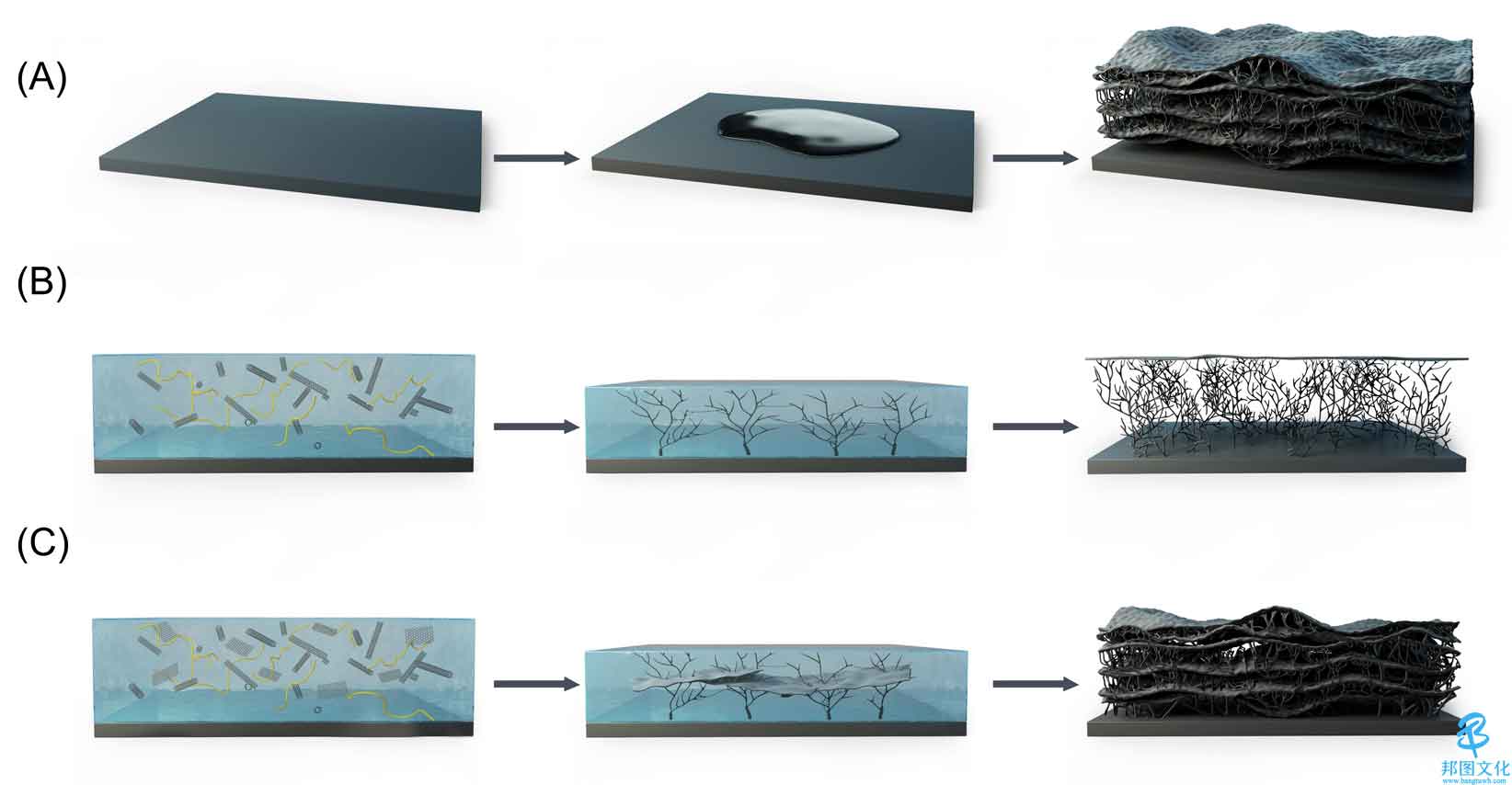
科研绘图sci画图作图学术杂志封面设计toc示意图文章配图医学动画





a porous structure based on a solution-based approach is highly desired for electrodes in flexible electronics due to the requirements of efficient electron and mass transfer. however, such a structure is largely unexplored for mxene-based electrodes. here, we developed a solution-based self-assembly system to produce a conductive film with a high void space. using water evaporation-induced self-assembly, a dendritic-lamellar mxene/carbon nanotube/polyvinylpyrrolidone electrode with high flexibility was prepared. by printing this electrode on hemisphere bumps of natural rubber substrates, a tactile sensor was prepared using face-to-face contacting of the hemisphere bumps. a detection limit of 0.69 pa and a response time of ∼48 ms were obtained for the sensor, which were demonstrated for voice recognition and pulse measurement. an artificial skin realized a resolution of n2 using 2n connection ports based on the printed mxene/swcnt/pvp electrode. this solution-based self-assembly for construction of mxene-related composites can be applied to other two-dimensional nanomaterials.



微信扫一扫,加设计师好友
17621261539
周一至周五8:30-18:00

提升“研值”

工作人员将在1个小时内联系您。

